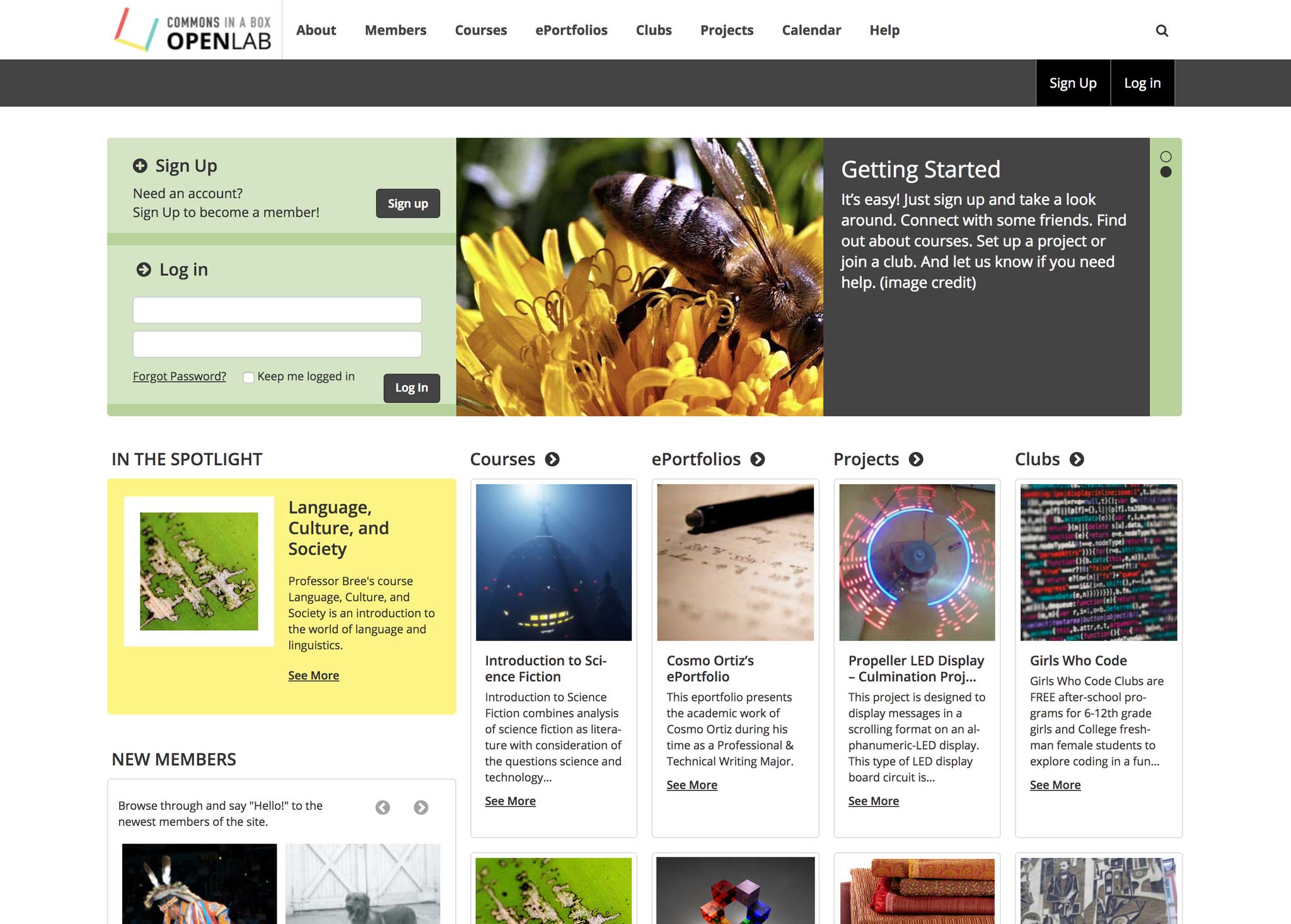The Commons In A Box team is delighted to announce the public release of Commons In A Box OpenLab, a free open-source software platform for teaching, learning, and collaboration.

Commons In A Box OpenLab homepage
Over the past two years, we have partnered with the OpenLab team at New York City College of Technology, CUNY (City Tech) to develop a teaching-focused version of Commons In A Box modeled on City Tech’s OpenLab, an open digital platform that has served more than 27,000 members of the City Tech community since its launch in Fall 2011.
With today’s release, Commons In A Box (CBOX) now includes a choice of two packages: CBOX Classic and CBOX OpenLab.
CBOX Classic, the original version of our software, provides a flexible platform designed for communities of all kinds. It powers sites for hundreds of groups and organizations worldwide, who use it to create social networks where members can collaborate on projects, build communities, publish research, and create repositories of knowledge.
The new package, CBOX OpenLab, is specifically designed to support teaching, learning, and collaboration. Unlike closed online teaching systems, it allows members to share their work openly with one another and the world. Like a lab, it provides a space where students, faculty, and staff can work together, experiment, and innovate.
We believe CBOX OpenLab provides a powerful and flexible open alternative to costly proprietary educational platforms, enabling faculty and staff members, departments, and entire institutions to create and customize community spaces for open learning.
The creation of CBOX OpenLab was made possible by generous funding from the National Endowment for the Humanities’ Office of Digital Humanities. The project seeks to enhance humanities education – and public understanding of humanities education – by enabling the work of students, and faculty, and staff to be more visible and connected to the outside world. It also seeks to deepen engagement between the digital humanities and pedagogy by incorporating software (plugins) developed by digital humanities practitioners.
To learn more, read the official announcement and explore our newly-updated site, which provides extensive documentation, demo sites, and support forums where you can get help and advice. We look forward to hearing from you!



Comments are closed.